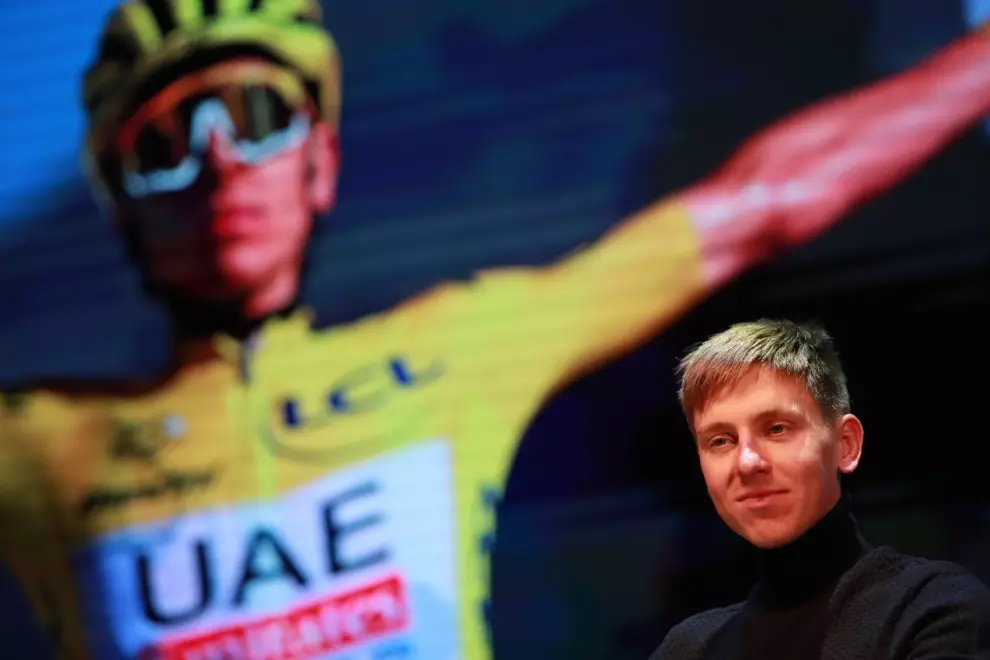
Tadej Pogačar has become a name synonymous with modern cycling dominance. At just 25, the Slovenian superstar has already won two Tour de France titles (2020, 2021), and his relentless success begs a controversial question: Is Pogačar too good for the sport?
On the surface, Pogačar’s brilliance should be celebrated. His performances have been nothing short of spectacular, whether it’s his climbing ability, his impressive time trials, or his fearless racing style. He brings excitement to every race, constantly pushing the boundaries of what’s expected. But is this unrelenting dominance helping or hurting the sport?
The Threat of Dominance
When one athlete continually outclasses the competition, the dynamic of the sport can suffer. Take a look at cycling history—Miguel Indurain, Lance Armstrong, and even Chris Froome all faced similar scrutiny during their peaks. Dominance often alienates casual fans and makes competition predictable. Watching a race knowing Pogačar will likely win saps the excitement from those dramatic mountain stages or nail-biting sprint finishes. Are we at risk of another “Froome-era,” where one rider’s superiority dulls the appeal of cycling?
In the 2023 season alone, Pogačar won the Tour of Flanders, Amstel Gold Race, and La Flèche Wallonne, while securing second at the Tour de France. It wasn’t just his victories but the audacity with which he won—attacking kilometers from the finish, powering through with ease. This level of skill prompts admiration but also concern: where’s the challenge?
Doping Ghosts Haunt Cycling
Given cycling’s dark history with doping scandals, Pogačar’s extraordinary talent inevitably invites suspicion. In a sport where greatness has often been marred by illegal enhancements, skeptics can’t help but wonder if any cyclist can dominate so completely without bending the rules. Though there’s no evidence to suggest any wrongdoing, Pogačar’s dominance forces us to relive cycling’s painful past, where icons fell from grace after revelations of cheating.
Fair or not, Pogačar’s success raises these concerns. How can someone at such a young age—virtually new to the professional peloton—demolish seasoned veterans? His consistent peak performance brings cycling’s trust issues into focus, and the sport can’t afford another scandal.
Where’s the Competition?
The sport thrives on rivalries. Pogačar’s rivalry with Jonas Vingegaard—who edged him out in the 2022 and 2023 Tours de France—has added some much-needed suspense. Yet, even Vingegaard’s triumphs feel overshadowed by Pogačar’s omnipresence in the sport. How long before the competition wanes, and Pogačar’s dominance becomes as predictable as it is boring?
It’s not just about winning. Pogačar can control races in ways that remind us of cycling’s greatest tacticians. He dictates the tempo, covers attacks effortlessly, and outmaneuvers seasoned competitors. When a single rider exerts such control, it risks discouraging younger talents and diminishing the competitive depth of the field.
The Counterpoint: Elevating the Sport
On the other hand, dominance can elevate cycling’s global profile. Every sport needs a superstar, and Pogačar’s brilliance has ignited renewed interest. His fearless racing style and willingness to attack—sometimes at seemingly impossible points in the race—make for thrilling spectacles. He’s breaking records and rewriting cycling’s history books at such a pace that new fans are being drawn to the sport.
Perhaps Pogačar isn’t bad for cycling, but rather, cycling needs to catch up. His presence challenges the sport’s traditional norms and compels teams and competitors to innovate. Like Michael Jordan in basketball or Usain Bolt in track, Pogačar may be redefining the limits of what’s possible, forcing others to elevate their game.
Conclusion: The Fine Line
Is Pogačar too good for cycling? The answer depends on who you ask. For purists, his dominance is a thrilling display of talent. For critics, it threatens the sport’s unpredictability and raises uncomfortable questions about fairness. As cycling moves forward, Pogačar’s continued success will undoubtedly shape its future. But for now, fans must grapple with the complex reality of watching a rider who may just be too good for the competition.
In the end, Pogačar’s legacy could be determined by how well his rivals rise to the challenge—and whether the sport can keep pace with its unstoppable superstar.





